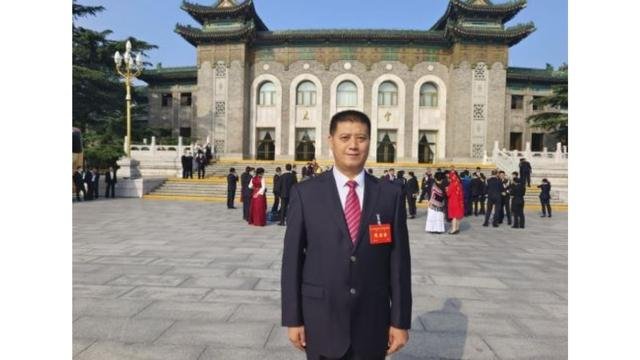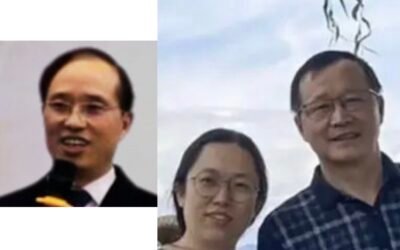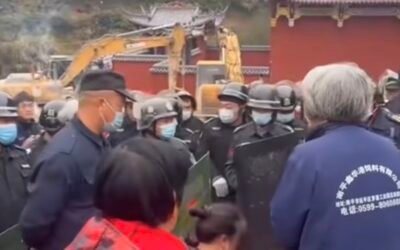Liu Yanfu, the architect of one of the largest networks of deprogramming centers in China, received an award at the National Commendation Conference.
by Fang Yongrui

Media in Inner Mongolia (which its non-Han inhabitants prefer to call Southern Mongolia) and nationally are publishing lavish praises of Liu Yanfu, a section chief at the Political and Legal Committee of Wuhai Municipal Committee of the Chinese Communist Party. Liu has been honored by Xi Jinping on August 30 with one of the awards for the “Civil Servants the People Is Happy With” at China’s National Commendation Conference.
Wuhai is a prefecture-level city in Inner Mongolia, and the section Liu leads is called the Anti-Xie-Jiao Coordination Section. Liu is also known for having been instrumental in creating in Inner Mongolia one of the largest networks in China of the euphemistically named “Caring Homes” (关爱之家), i.e., centers where members of the xie jiao are taken for deprogramming. As readers of Bitter Winter know, “xie jiao” is often translated as “cults,” but the translation is both anachronistic and inaccurate. “Xie jiao” has been used in China since the Middle Ages to designate forms of “illegal” religion, and religious movements regarded as hostile to the government.
Falun Gong, The Church of Almighty God, and the Association of Disciples are regarded as the main xie jiao in China today, and there is a list of the xie jiao updated periodically. However, public security and courts have a large latitude to designate as xie jiao groups both included and not included in the list.

The anti-xie-jiao machinery in China is enormous. The award given to Liu spotlights its size and features. Liu is a former high-ranked military man, who transferred to full time anti-xie-jiao work in 2007. We learned from the motivations of the award that he applied military strategy to fighting the xie jiao in the Wuhai area, and has organized more than 1,850 anti-xie-jiao events. He has also taken advantage of the grid system, which has divided all of China in 100×100 meters grids for surveillance, by installing an anti-xie-jiao correspondent in each grid in Wuhai.
Liu’s main success, however, lies in having established in Inner Mongolia a network of 83 “Caring Homes,” centered in Wuhai, where members of the xie jiao are taken for being deprogrammed, which in China is sometimes called “solving the ideological confusion.”

According to the award motivations, Liu achieved great success with his “Caring Homes,” which became a national model. The fact that in an area of Inner Mongolia there are 83 such facilities offers an idea of how massive in China today are the size of the anti-xie-jiao operations and the efforts for deprogramming xie jiao members.

Uses a pseudonym for security reasons.



